Address
304 North Cardinal
St. Dorchester Center, MA 02124
Work Hours
Monday to Friday: 7AM - 7PM
Weekend: 10AM - 5PM
Address
304 North Cardinal
St. Dorchester Center, MA 02124
Work Hours
Monday to Friday: 7AM - 7PM
Weekend: 10AM - 5PM
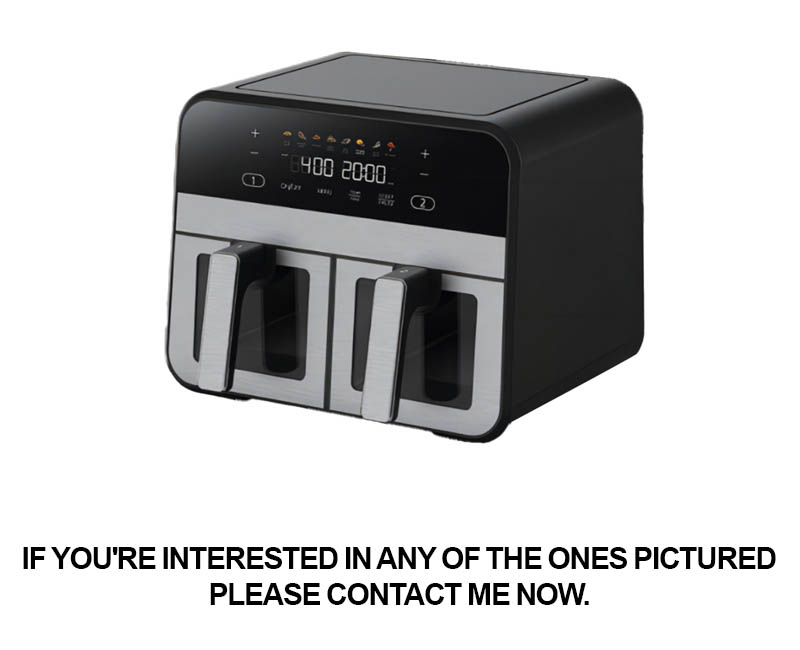
In a world where technology and innovation never sleep, the landscape of kitchen appliances is rapidly evolving. As brands look to expand their reach into new markets, understanding the intricacies of certifications like the UKCA (United Kingdom Conformity Assessment) is crucial. Today, we delve into the art of selecting the perfect turnkey partner for UKCA certification, ensuring that your products not only meet but exceed the standards of the EU market.
UKCA certification stands as a critical milestone for companies looking to enter the EU market with their kitchen appliances. This mark of compliance not only ensures that products meet the stringent safety and quality standards set by the European Union but also signifies a commitment to the region’s regulatory framework. Here’s a deeper dive into why UKCA certification is so important for market entry in the EU.
The UKCA mark is a testament to a product’s conformity with the essential requirements of EU legislation. It’s a clear indicator to consumers and retailers that the appliance they are dealing with is safe and meets the necessary quality standards. For kitchen appliance manufacturers, obtaining this certification is not just about compliance; it’s about credibility and trust.
In the wake of the UK’s departure from the EU, the UKCA mark has become the new standard for products intended for sale in the UK and the EU’s single market. This shift requires businesses to reassess their certification strategies and ensure that their products are UKCA-compliant. The process can be complex, involving various technical assessments and compliance checks, but the end result is a seamless entry into the EU market.
One of the key reasons UKCA certification is vital for EU market entry is the assurance it provides. The EU has a reputation for rigorous safety standards, and the UKCA mark helps to bridge the gap between the UK and EU regulations. For consumers, this means peace of mind, knowing that the appliances they purchase are safe to use. For manufacturers, it means avoiding potential legal issues and fines that could arise from non-compliance.
Moreover, UKCA certification is not just about safety and quality; it’s also about market access. Without this mark, products may be denied entry into the EU, leading to significant losses for businesses. The certification process ensures that products are designed, manufactured, and tested to meet the specific requirements of the EU market, thus reducing the risk of product recalls and customer dissatisfaction.
The certification process itself can be quite intricate. It involves thorough evaluation of product design, materials, manufacturing processes, and performance. This comprehensive assessment helps to identify and rectify any non-compliance issues early on, saving time and resources in the long run. By ensuring that all aspects of the product meet EU standards, businesses can avoid the hassle of re-designing or re-certifying their products post-market entry.
For businesses that are new to the EU market, understanding the intricacies of UKCA certification is crucial. It requires a deep understanding of the EU’s technical regulations and directives, which can be daunting for those not familiar with the legal landscape. However, with the right guidance and support, companies can navigate this process effectively.
One of the challenges faced by manufacturers is the need for accurate and up-to-date information. The EU’s regulatory framework is dynamic, with frequent updates and changes. Staying informed about these changes is essential for maintaining compliance. Turnkey UKCA certification solutions offer a valuable service by providing this information and ensuring that products are always in line with the latest requirements.
Additionally, the UKCA certification process also serves as an opportunity for innovation. As manufacturers work towards meeting the EU’s stringent standards, they often find ways to improve their products, making them more efficient, sustainable, and user-friendly. This not only benefits the consumer but also enhances the brand’s reputation in the EU market.
In conclusion, UKCA certification is not just a regulatory requirement; it’s a gateway to the EU market. It ensures compliance with the EU’s safety and quality standards, builds consumer trust, and opens doors for businesses looking to expand their reach. While the process can be complex, it is an investment in the long-term success of a company in the European market. By understanding the importance of UKCA certification and taking the necessary steps to obtain it, businesses can confidently enter and thrive in the EU’s competitive kitchen appliance industry.

In the dynamic landscape of the European Union (EU) market, navigating the complexities of regulatory compliance can be a daunting task, especially for companies looking to expand their operations. Enter turnkey solutions, a comprehensive approach that simplifies the process of entering the EU market with ease and efficiency. Here’s a closer look at how these solutions can streamline your journey.
Understanding Turnkey SolutionsTurnkey solutions are all-encompassing packages that provide a one-stop-shop for companies seeking to enter new markets. In the context of the EU market, these solutions often include everything from regulatory compliance, certification, and labeling to logistics and distribution. This holistic approach ensures that businesses can focus on what they do best—manufacturing and selling their products—while leaving the intricacies of market entry to experts.
The Regulatory ChallengeThe EU has stringent regulations that must be adhered to by all companies looking to sell products within its borders. This includes compliance with the UKCA (United Kingdom Conformity Assessment) mark, which is a requirement for products being sold in the UK and the EU after the Brexit transition period. Navigating these regulations can be a complex and time-consuming process, often requiring specialized knowledge and resources.
Streamlining Certification ProcessesOne of the key benefits of turnkey solutions is the ability to streamline the certification process. By partnering with a turnkey provider, companies can benefit from their expertise in understanding and navigating the various certification requirements. This can include assistance with technical documentation, product testing, and obtaining the necessary UKCA certification, which is crucial for market entry.
Customized Support for Diverse ProductsThe EU market is vast and diverse, with a wide range of product categories and regulations. Turnkey solutions offer customized support tailored to the specific needs of different product types. Whether it’s kitchen appliances, electronics, or automotive parts, these solutions ensure that each product meets the necessary standards and regulations for its respective market segment.
Efficient Logistics and DistributionIn addition to certification, turnkey solutions often encompass logistics and distribution services. This means that companies can rely on their turnkey partner to handle the transportation, warehousing, and delivery of their products to the EU market. This not only saves time and resources but also ensures that products are delivered in a timely and efficient manner.
Compliance with EU DirectivesThe EU has a variety of directives that govern the sale of products within its market, such as the General Product Safety Directive (GPSD) and the Waste Electrical and Electronic Equipment Directive (WEEE). Turnkey solutions help ensure that companies are not only compliant with these directives but also with the specific requirements of each member state, which can vary significantly.
Risk Management and MitigationEntering a new market always comes with its risks, including potential fines for non-compliance. Turnkey solutions provide a layer of risk management by ensuring that all aspects of market entry are handled with precision and care. This reduces the likelihood of regulatory issues and the financial implications that come with them.
Cost-Effective Market EntryWhile the cost of entering a new market can be substantial, turnkey solutions are designed to be cost-effective. By consolidating various services into a single package, companies can avoid the expense of hiring multiple consultants or agencies to handle different aspects of market entry. This consolidated approach often results in significant savings.
Building Strong Relationships with Local PartnersTurnkey solutions also facilitate the development of strong relationships with local partners in the EU. These partnerships can be invaluable for understanding the local market dynamics, consumer preferences, and distribution channels. By leveraging the expertise of local partners, companies can tailor their marketing and sales strategies to achieve greater success.
Long-Term Strategic PlanningFinally, turnkey solutions offer a strategic advantage by providing a clear roadmap for long-term market entry and expansion. With the guidance of turnkey experts, companies can plan for future regulatory changes, market trends, and growth opportunities, ensuring a sustainable presence in the EU market.
In summary, turnkey solutions are a powerful tool for companies looking to navigate the EU market. By offering comprehensive support, from certification to distribution, these solutions simplify the complexities of market entry and provide a solid foundation for long-term success.
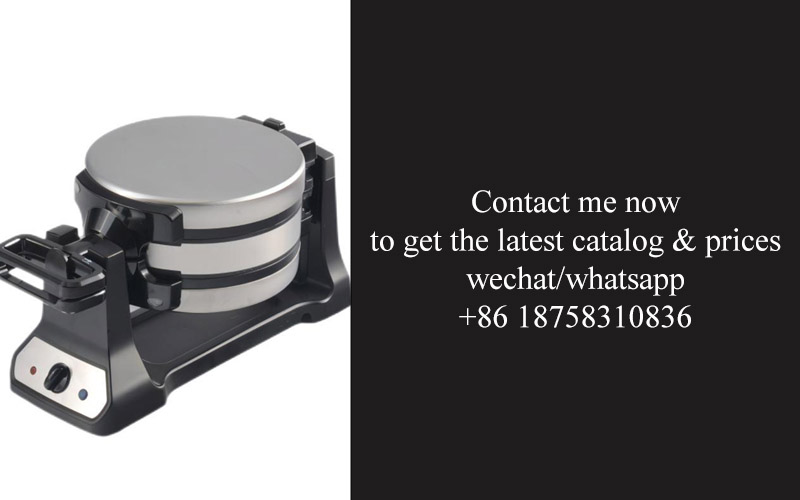
In the ever-evolving landscape of kitchen appliances, innovation is not just a buzzword; it’s the driving force behind the latest trends that promise to revolutionize the way we cook and live. From smart technology integration to sustainable materials, here’s a peek into the future of kitchen appliances.
Smart Connectivity is Redefining ConvenienceImagine a kitchen where your appliances communicate with each other and with you. Smart refrigerators that can suggest recipes based on the ingredients you have, ovens that can be controlled remotely from your phone, and cooktops that adjust heat levels automatically—these are not just dreams but realities on the horizon. The rise of the Internet of Things (IoT) is making kitchen appliances more interconnected than ever, offering users a level of convenience and efficiency that was once unimaginable.
Energy Efficiency Meets StyleEnergy consumption is a significant concern for both homeowners and manufacturers. The future of kitchen appliances will see a greater emphasis on energy efficiency without compromising on design. We’re talking about appliances that not only save energy but also look sleek and modern. LED lighting, energy-saving motors, and programmable settings are just the beginning. As environmental consciousness grows, so does the demand for appliances that are both eco-friendly and aesthetically pleasing.
Sustainability in MaterialsThe kitchen of the future will not only be smart and efficient but also sustainable. Manufacturers are increasingly looking to eco-friendly materials such as recycled stainless steel, bamboo, and recycled plastics. These materials not only reduce the environmental impact but also offer unique design elements that can set your kitchen apart. From countertops to dishwashers, the use of sustainable materials is set to become a standard feature in the next generation of kitchen appliances.
Personalized Cooking ExperiencesWith the help of artificial intelligence and machine learning, kitchen appliances are becoming more personalized. Imagine a blender that can tailor its blending cycles to the specific type of smoothie you’re making or an oven that adjusts its temperature based on the recipe you’re following. These advancements are not just about convenience; they’re about creating a cooking experience that’s tailored to your preferences and dietary needs.
Interactive Cooking AssistantsThe days of flipping through cookbooks are numbered, as interactive cooking assistants are set to become a staple in modern kitchens. These intelligent devices can guide you through the cooking process, offering step-by-step instructions, nutritional information, and even virtual demonstrations. With voice commands and touchscreens, these assistants are designed to make cooking less intimidating and more enjoyable for everyone, regardless of their culinary expertise.
Augmented Reality (AR) in Kitchen DesignAugmented reality is not just for video games; it’s also making its way into kitchen design. With AR, homeowners can visualize how different appliances will look and function in their space before making a purchase. This technology allows for a more informed decision-making process, ensuring that the kitchen of the future is not only functional but also beautifully designed to match individual tastes.
Health and Wellness IntegrationHealth-conscious consumers are driving the integration of health and wellness features into kitchen appliances. From air-fryers that reduce oil usage to microwaves that can steam vegetables, appliances are becoming more health-focused. Additionally, smart scales and calorie counters are being integrated into kitchen appliances, providing users with real-time data on their food preparation and consumption.
The Future is Here, but Not Yet Fully ImplementedWhile many of these innovations are already in development or on the market, the full potential of these advancements is yet to be realized. The future of kitchen appliances is a blend of smart technology, sustainability, and personalization that promises to transform the heart of our homes into a hub of convenience, efficiency, and health. As these technologies continue to evolve, the kitchen of the future will be a testament to human ingenuity and the relentless pursuit of better living.
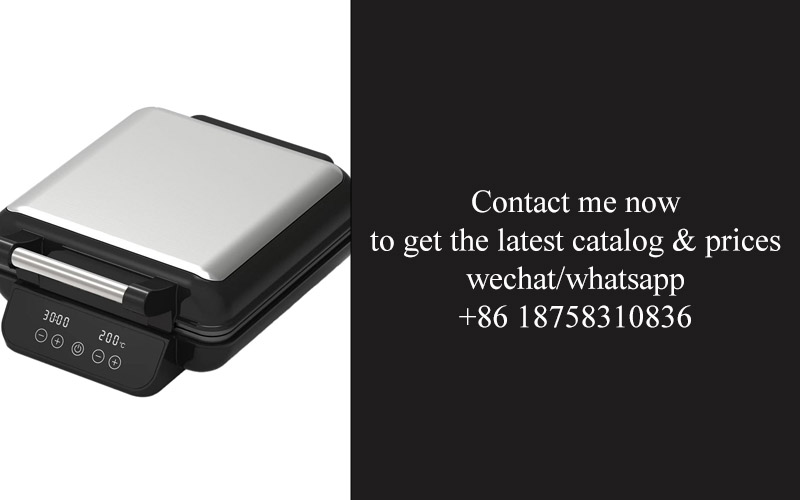
In the ever-evolving landscape of the kitchen appliances industry, staying ahead of the curve is crucial. Industry trends and data serve as the compass guiding manufacturers and consumers alike. Let’s delve into how these insights can shape the future.
The rise of smart appliances is not just a trend; it’s a revolution. From fridges that can reorder groceries to ovens that can tailor cooking times based on recipe input, smart technology is reshaping the kitchen. Data analytics within these devices are not only enhancing user experience but also optimizing energy consumption.
Energy efficiency is no longer just a buzzword; it’s a mandatory standard. The latest data shows a growing consumer preference for appliances that not only save energy but also reduce environmental impact. Innovators are pushing the boundaries with appliances that use renewable energy sources and are designed for longevity.
Sustainability is more than just a buzzword; it’s a core value. The industry is witnessing a shift towards eco-friendly materials and manufacturing processes. Appliances that are recyclable or biodegradable are becoming more common, reflecting a broader commitment to the planet’s health.
Personalization is key in today’s market. Data-driven insights allow manufacturers to tailor products to individual needs. Imagine a dishwasher that learns your cleaning preferences and adjusts its cycle accordingly. This level of customization is not just about convenience; it’s about empowering users to have a kitchen that truly fits their lifestyle.
The integration of kitchen appliances with home automation systems is becoming more seamless. Smart homes are not just a concept; they’re becoming a reality. The ability to control appliances through voice commands or a single app is not just convenient; it’s a step towards a more interconnected and efficient living space.
Health and wellness are at the forefront of consumer minds. Kitchen appliances that can help track dietary intake, promote healthier cooking methods, or even sanitize surfaces are gaining traction. The data suggests a growing market for appliances that support a healthier lifestyle.
The rise of the gig economy and the need for compact living spaces have led to a demand for smaller, more versatile appliances. Think of a countertop oven that can also serve as a microwave or a compact refrigerator that can fit into a smaller kitchen. Data indicates that these multi-functional devices are becoming increasingly popular.
Consumer behavior is changing rapidly, and with it, the way we interact with our kitchen appliances. The use of augmented reality (AR) and virtual reality (VR) in the appliance buying process is on the rise. Users can now visualize how a new oven or refrigerator will look in their kitchen before making a purchase.
The importance of connectivity cannot be overstated. Appliances that can connect to the internet and offer remote monitoring and control are becoming standard. This connectivity not only provides convenience but also ensures that appliances can be updated with the latest features and safety protocols.
Innovation in kitchen appliances is not just about creating new products; it’s about solving real-world problems. Data from consumer usage patterns and feedback is being used to develop appliances that not only meet current needs but also anticipate future ones.
As the industry continues to evolve, the role of data and trend analysis will only grow more significant. By staying informed and adapting to these trends, companies can ensure they remain competitive and relevant in the dynamic world of kitchen appliances.
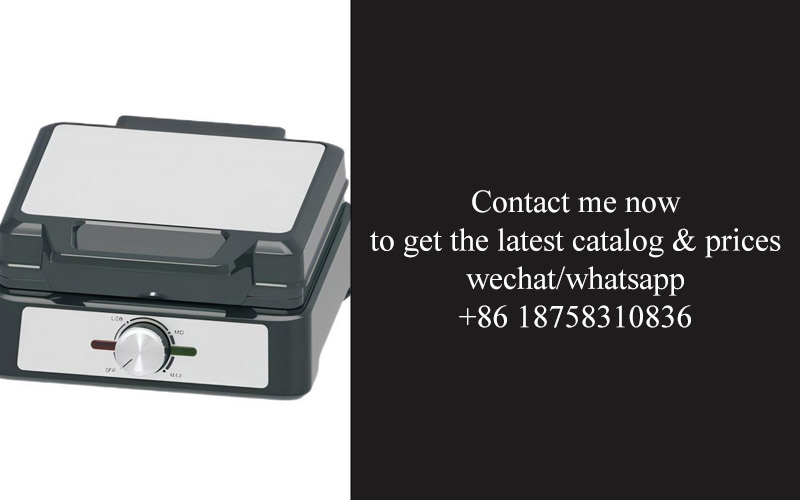
In today’s rapidly evolving market, expanding your product reach into the European Union is a strategic move that requires careful consideration. The UKCA (United Kingdom Conformity Assessment) certification plays a pivotal role in this expansion. Let’s delve into how a turnkey UKCA certification process can be a game-changer for businesses looking to establish their presence in the EU market.
Navigating the complexities of international regulations can be daunting, but with a turnkey solution, the process becomes more streamlined. A turnkey service ensures that all necessary certifications and compliance checks are handled by experts, freeing up your resources to focus on your core business activities.
One of the key benefits of turnkey UKCA certification is the comprehensive support it offers. From initial assessment to final certification, these services are designed to guide you through every step of the process. This means that you don’t have to invest in extensive legal or technical knowledge; the experts take care of it all.
The EU market is stringent when it comes to safety and quality standards. UKCA certification is designed to meet these exacting requirements, ensuring that your products adhere to the highest safety and environmental standards. By obtaining UKCA certification, you’re not just satisfying legal obligations; you’re also demonstrating to consumers that your products are of the highest quality.
Turnkey UKCA certification services often come with a wealth of experience in dealing with EU regulations. This means that they can anticipate potential hurdles and address them proactively. For instance, they can help you understand the nuances of different EU member state regulations and tailor your certification accordingly.
The EU market is vast and diverse, with varying consumer preferences and cultural nuances. A turnkey UKCA certification service can provide insights into these differences and help you customize your product offerings to cater to specific regional needs. This level of localization can significantly enhance your market appeal and customer satisfaction.
In addition to ensuring compliance, UKCA certification can also serve as a powerful marketing tool. It’s a recognized mark of quality that can help differentiate your products from competitors. When consumers see the UKCA mark, they know they’re getting a product that meets strict safety and quality standards, which can be a deciding factor in their purchasing decisions.
The process of obtaining UKCA certification can be time-consuming and resource-intensive. However, a turnkey solution can significantly reduce the time it takes to get your product onto the EU market. By handling all the paperwork, assessments, and inspections, these services ensure a faster and more efficient certification process.
In a world where consumer expectations are continuously rising, the ability to innovate and adapt quickly is crucial. A turnkey UKCA certification service can help you stay ahead of the curve by providing you with up-to-date information on emerging regulations and industry trends. This means you can make informed decisions about your product development and marketing strategies.
Another advantage of turnkey UKCA certification is the potential for cost savings. While it may seem counterintuitive, these services can actually save you money in the long run. By avoiding common pitfalls and delays, you can avoid costly penalties or the need to re-certify your products.
The EU market is also highly competitive, and staying compliant with regulations is just the first step. A turnkey UKCA certification service can help you understand the competitive landscape and identify opportunities for growth. They can provide market analysis and strategic advice that can help you position your brand effectively.
In conclusion, expanding your EU reach with UKCA certification is a multifaceted endeavor. A turnkey solution offers a comprehensive, efficient, and informed approach to navigating the complexities of the EU market. From compliance to market insights, these services can provide the edge you need to succeed in one of the world’s most lucrative markets.
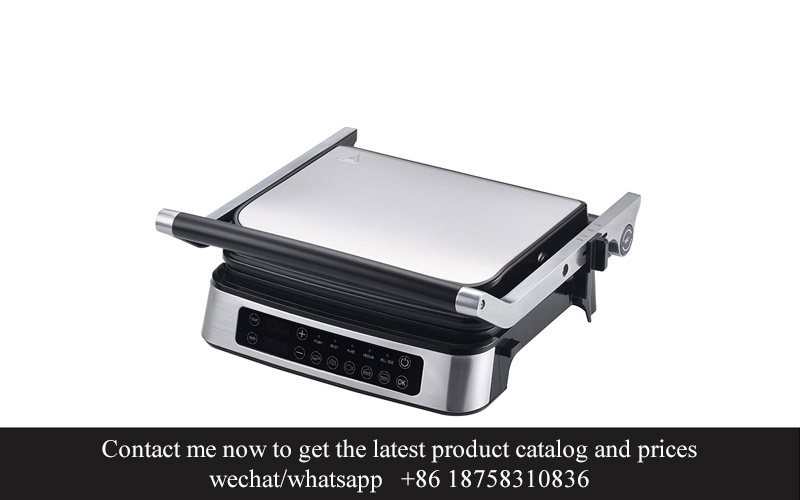
In the world of kitchen appliances, there are brands that have navigated the complexities of market entry with turnkey solutions, turning challenges into opportunities. Here are a few success stories that highlight how these brands made it with turnkey solutions:
Brand A’s Global Expansion: How a Small Startup Grew RapidlyBrand A, a small startup with innovative kitchen appliance designs, faced the daunting task of entering the EU market. With limited resources and expertise, they turned to a turnkey solution provider. The provider managed everything from certification to logistics, allowing Brand A to focus on what they do best—designing products. The turnkey service streamlined the process, and within a year, Brand A had a strong presence in several EU countries.
Brand B’s UKCA Certification Journey: Overcoming Regulatory HurdlesBrand B, a well-established kitchen appliance manufacturer, encountered regulatory hurdles when preparing to launch in the EU. The UKCA (United Kingdom Conformity Assessed) certification process was unfamiliar territory. By partnering with a turnkey solution provider, Brand B was able to navigate the intricacies of UKCA certification efficiently. This partnership ensured compliance, saving the company time and resources.
Brand C’s Smart Kitchen Revolution: Leveraging Turnkey for InnovationBrand C, known for its smart kitchen appliances, sought to expand its product line into the EU market. However, the complexities of integrating new technologies with existing regulations posed a significant challenge. A turnkey solution provider was instrumental in integrating the latest innovations while ensuring compliance with EU standards. This strategic partnership allowed Brand C to introduce its cutting-edge products with ease.
Brand D’s Rapid Market Penetration: Scaling Up with Turnkey LogisticsBrand D, a mid-sized kitchen appliance manufacturer, aimed to rapidly penetrate the EU market. The logistics of shipping, warehousing, and distribution were daunting. A turnkey solution provider offered a comprehensive logistics package, ensuring that Brand D’s products were delivered to retailers and consumers efficiently. This streamlined approach helped Brand D achieve its market penetration goals in record time.
Brand E’s Customization Success: Tailoring Solutions for Diverse MarketsBrand E, with a diverse range of kitchen appliances, needed a turnkey solution that could cater to the unique requirements of different EU countries. The turnkey provider not only handled the standard certification and compliance but also customized the solutions to meet specific market demands. This tailored approach enabled Brand E to offer localized products that resonated with consumers across the EU.
Brand F’s Cross-Channel Distribution: Expanding Sales Through Turnkey PartnershipsBrand F, a premium kitchen appliance brand, wanted to expand its sales channels in the EU. The turnkey solution provider not only managed certification but also facilitated partnerships with local distributors and retailers. This strategic expansion allowed Brand F to tap into new sales channels and reach a broader customer base.
Brand G’s Market Adaptation: Adapting to EU Regulations with Turnkey ExpertiseBrand G, a company with a global presence, needed to adapt its products to meet EU regulations. The turnkey provider offered a wealth of knowledge and experience, guiding Brand G through the certification process and ensuring that their products were compliant. This expertise helped Brand G maintain its reputation for quality and reliability in the EU market.
Brand H’s Product Launch: A Seamless Entry with Turnkey SupportBrand H, launching a new line of kitchen appliances, wanted a seamless entry into the EU market. The turnkey solution provider managed the entire process, from certification to marketing, ensuring that Brand H’s product launch was a success. This comprehensive support allowed Brand H to establish a strong foundation in the EU.
These success stories illustrate how turnkey solutions can be a game-changer for brands looking to expand their reach in the EU market. By leveraging the expertise of turnkey providers, brands can navigate the complexities of certification, logistics, and market entry, ultimately leading to successful market penetration and growth.
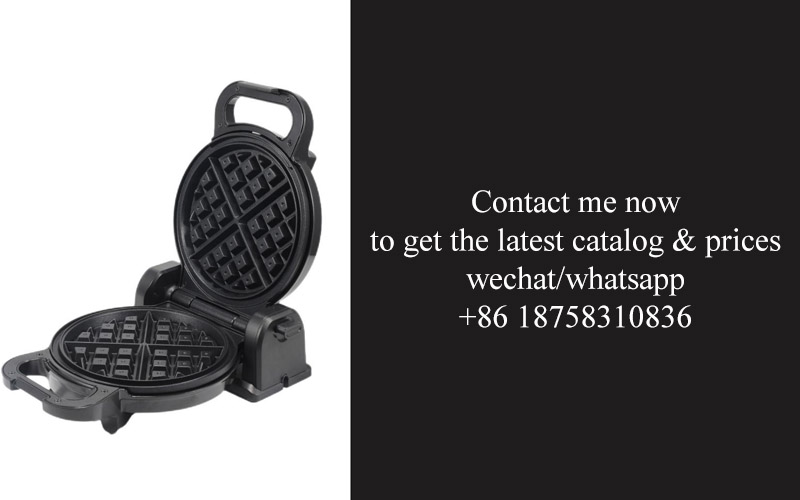
In the world of kitchen appliances, innovation is not just a buzzword; it’s a driving force shaping the industry’s future. From smart tech integration to eco-friendly designs, the landscape is evolving rapidly. Here’s a look at what we can expect in the coming years.
Smart Integration becomes the norm, not the novelty. The days of appliances that merely perform a single task are fading. Modern kitchen appliances are becoming more connected, capable of syncing with other smart devices and systems in the home. Imagine a refrigerator that not only keeps your food fresh but also suggests recipes based on what you have on hand.
Energy Efficiency takes center stage. As environmental concerns grow, so does the demand for appliances that consume less energy. In the future, we can anticipate a surge in appliances that are ENERGY STAR certified, using less power without compromising performance.
Personalization is key. Manufacturers are increasingly focusing on customization. This doesn’t just mean choosing colors or finishes; it extends to features that cater to specific user needs. Smart appliances will be able to learn your habits and preferences, adjusting their settings accordingly, creating a truly tailored kitchen experience.
Appliances that Think Like You Do. The integration of artificial intelligence (AI) is not just a concept; it’s happening now. Future kitchen appliances will have the ability to analyze usage patterns, predict maintenance needs, and even order replacement parts or consumables before you realize they’re needed.
Sustainability becomes a staple. As the awareness of environmental impact grows, we’ll see a shift towards appliances made from sustainable materials and designed for longer lifespans. This includes an emphasis on appliances that are easier to repair and recycle at the end of their life.
Health and Safety features are enhanced. The kitchen is a place where safety must always be a priority. In the future, appliances will include more advanced safety mechanisms, such as smart locks for ovens and fridges to prevent accidental use, and sensors that can detect gas leaks or smoke.
Voice Command and Gesture Control become second nature. As voice assistants become more sophisticated, they’ll be able to control kitchen appliances with simple commands. Plus, gesture recognition technology could soon make cooking even more intuitive, allowing you to adjust settings or start a cycle with a wave of your hand.
Appliances that Adapt to Your Lifestyle. Whether you’re a morning person or a night owl, the appliances of the future will adapt to your schedule. Imagine a coffee maker that starts brewing your morning coffee as you’re waking up or a fridge that keeps track of your diet and reminds you to eat your vegetables.
Modular Design becomes a trend. The kitchen of the future might not be a single unit, but a collection of modular appliances that can be rearranged and upgraded as needed. This would allow homeowners to customize their kitchen space and technology to fit their changing lifestyles.
In the realm of convenience, convenience knows no bounds. We’re talking about appliances that can do everything from ordering groceries online to monitoring your home security. The kitchen will become a hub of interconnected devices that make life easier and more efficient.
Smart Cooking becomes Art. With advancements in technology, cooking could become a blend of art and science. Smart appliances will be able to replicate recipes with precision, adjusting for the slightest variation in ingredients or cooking techniques.
The rise of the Internet of Things (IoT) in the kitchen. As more devices connect to the internet, the kitchen will become a hub of data and control. Imagine having access to your kitchen appliances and recipes from anywhere, using your smartphone or tablet.
Lastly, the kitchen of the future will be a place where innovation is not just about making appliances that do more, but about creating an experience that enhances daily life. It’s an exciting time for those who love to cook and for those who design and build the tools that bring culinary dreams to life.
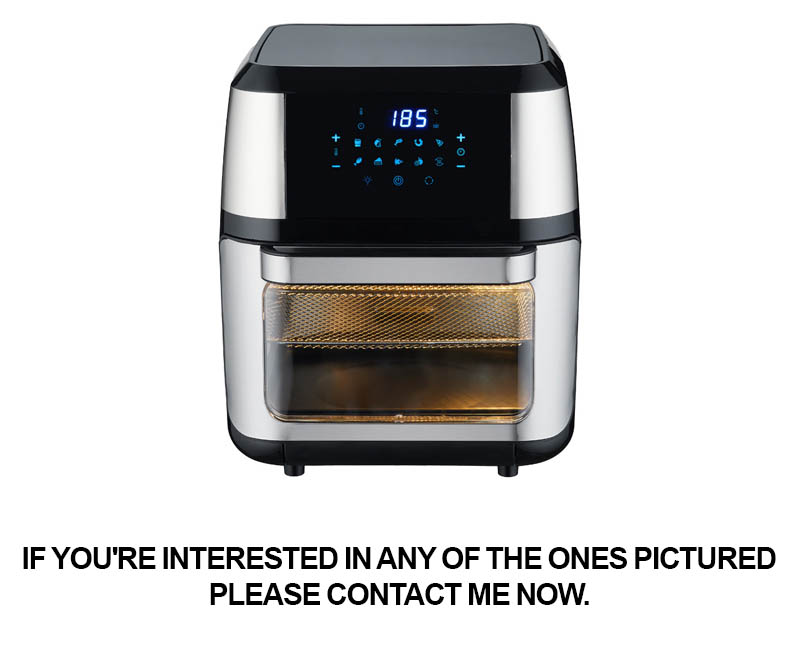
Understanding the Complexity of UKCA Certification
When it comes to entering the EU market with your kitchen appliances, the UKCA (United Kingdom Conformity Assessed) mark is a crucial piece of the puzzle. It’s not just about compliance; it’s about finding the right partner to navigate this intricate process. Here’s how to choose the right turnkey UKCA certification partner for your brand.
Evaluating Expertise and Experience
Look for a partner that has a deep understanding of the UKCA certification requirements. Experience in the kitchen appliances sector is a must, as regulations can vary significantly between different product categories. A partner with a proven track record in this space will likely have the expertise to guide you through the certification process efficiently.
Assessing Customization and Flexibility
Every brand has unique needs, and your certification partner should be able to tailor their services to fit those needs. Whether you require assistance with product design, technical documentation, or compliance testing, the right partner will offer a range of customizable solutions that align with your specific goals.
Understanding the Certification Process
A good partner will not only guide you through the certification process but also educate you on what to expect at each stage. From initial assessment to final certification, understanding the timeline and the steps involved is key. Ensure your partner is transparent about the process and can provide regular updates to keep you informed.
Checking for a Comprehensive Service Offering
A turnkey solution should encompass all aspects of UKCA certification. This includes not just the actual certification process but also any necessary modifications to your product, quality control measures, and ongoing compliance support. A partner that offers a full-service package can streamline the process and reduce the stress of entering a new market.
Considering the Track Record
Success stories can be illuminating. Look for a partner with a history of successfully guiding brands through UKCA certification and into the EU market. Case studies or testimonials from other kitchen appliance manufacturers can give you insights into how well the partner handles the complexities of certification and market entry.
Looking for a Global Perspective
The EU market is vast and diverse. Your certification partner should have a global perspective, understanding the nuances of different European countries and how to tailor your product offerings accordingly. This includes knowledge of local regulations, consumer preferences, and distribution channels.
Ensuring Quality Assurance
Certification is not just about meeting standards; it’s about ensuring the quality of your products. A reliable partner will emphasize quality assurance throughout the certification process, helping you to maintain high standards and build trust with European consumers.
Verifying Regulatory Compliance
The UKCA certification is all about compliance with EU regulations. Your partner should be able to verify that all aspects of your product meet the necessary requirements, including safety, environmental protection, and labeling. This verification should be thorough and ongoing to ensure continuous compliance.
Communication and Transparency
Effective communication is key in any business relationship, especially when dealing with complex certifications. Your partner should be responsive, clear in their communication, and transparent about any potential challenges or delays. Regular updates and a willingness to answer questions will help you feel confident in their abilities.
Pricing and Value for Money
While cost is a significant factor, it’s important not to compromise on quality or expertise. Look for a partner that offers competitive pricing without skimping on the level of service. Value for money comes from a balance of affordability, expertise, and the comprehensive support you receive.
In conclusion, choosing the right turnkey UKCA certification partner is about finding a company that combines expertise, flexibility, and a commitment to quality. By evaluating these factors, you can ensure a smooth and successful entry into the EU market for your kitchen appliances.